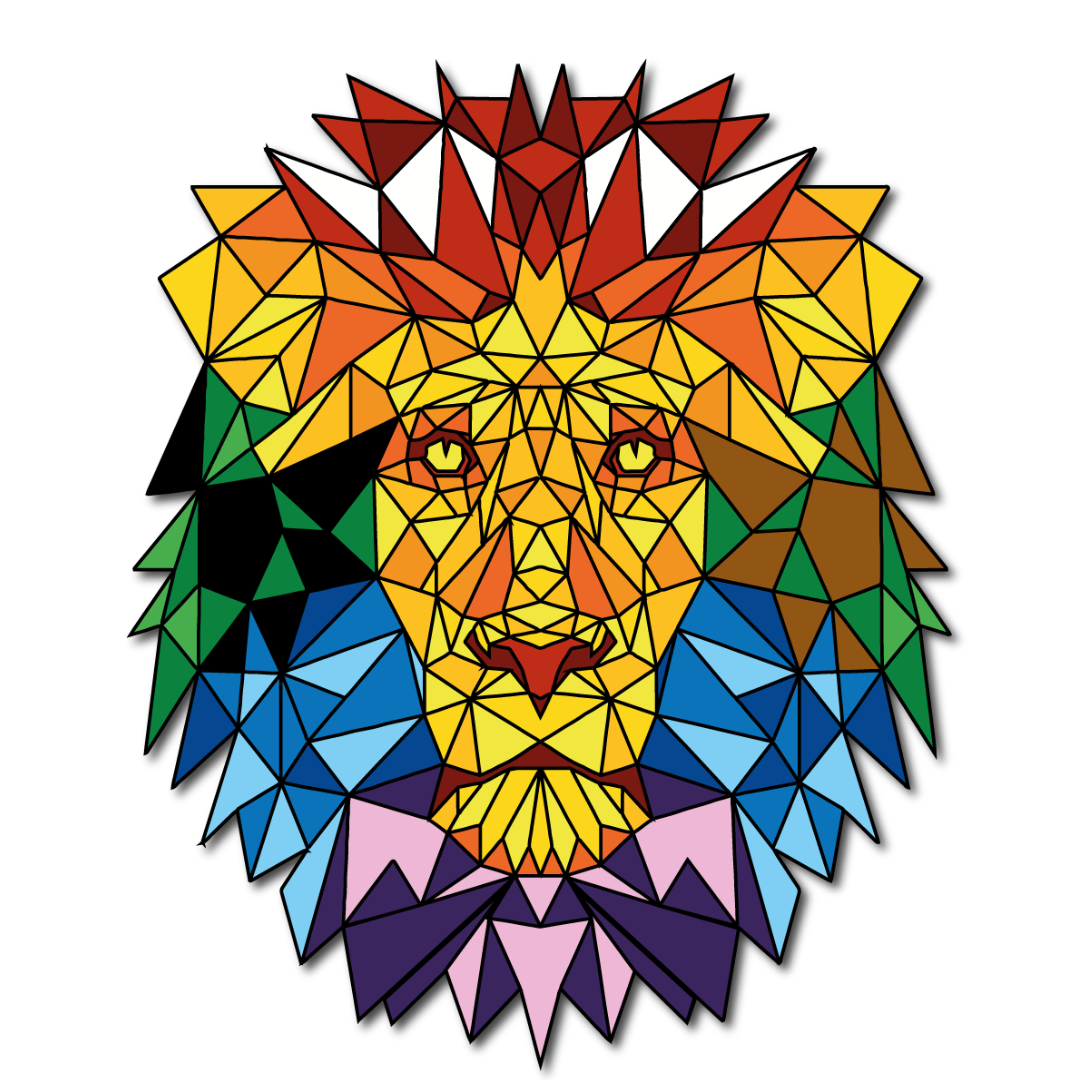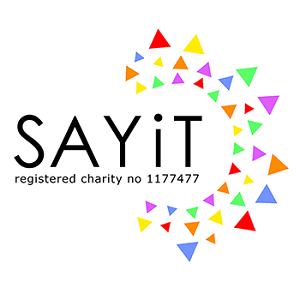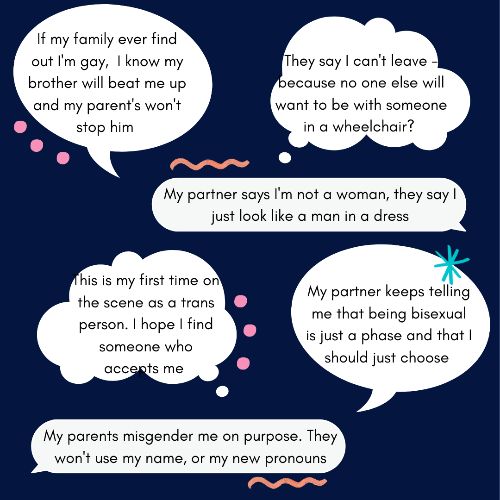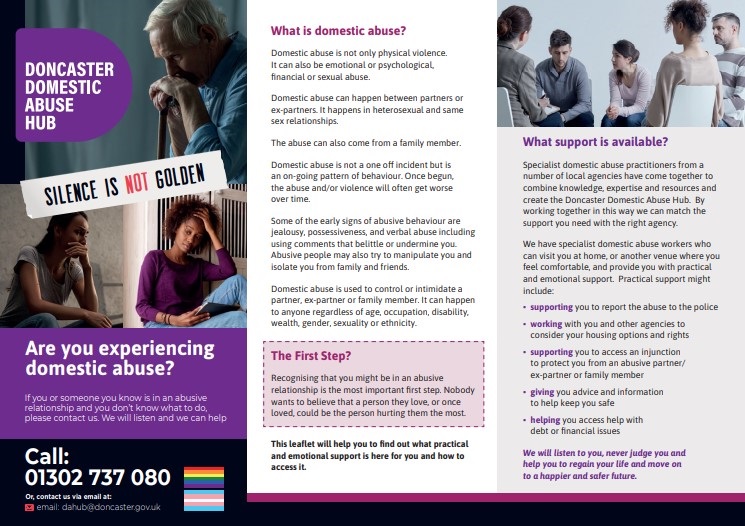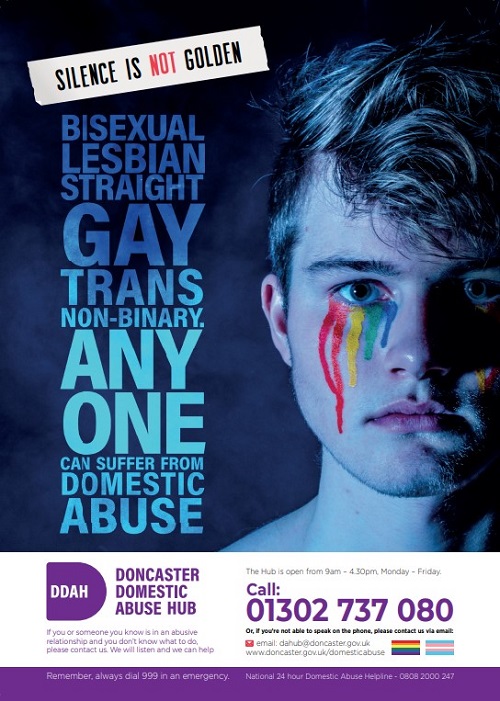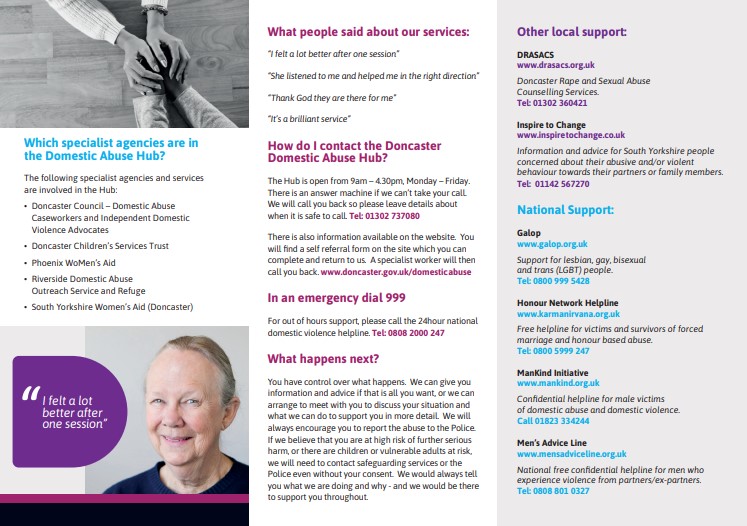SAYiT
SAYiT Sheffield and the Call it Out project are proud to launch a new domestic abuse programme:
'Our Safe Space' is a Power to Change-style group for LGBT+ people who want to explore and begin to heal from their experiences of domestic abuse, sexual violence, power and control.
The group will take place during November and December, with 6 sessions over 3 weeks. In it, we will cover themes such as; LGBT+ experiences of abuse, how homophobia, transphobia and biphobia can be experienced in abusive relationships, and ways of healing from your experiences.
This is open to anyone who:
- Identifies as LGBT+ Aged 16+
- Has experienced domestic abuse or sexual violence in intimate partner or family relationships
- Or who is unsure about whether their experiences were abusive.
Contact SAYiT to reserve your space or find out more information - limited spaces!
info@sayit.org.uk / 0114 241 7278

LGBT+ Domestic Abuse Support
There are many myths and stereotypes which minimise the experience for LGBT+ victims of abuse and make it difficult for victims to seek help. Common myths and stereotypes are:
- Abuse doesn't happen in same-sex relationships Abuse in same-sex relationships is not as serious as heterosexual abuse
- Abuse is more likely to be mutual
- Abuse is about size and strength - an abusive lesbian will be the more masculine one and a gay male victim will be the smaller one.
- Sexual abuse does not happen in same-sex relationships – a woman cannot sexually assault another woman and a man cannot be raped
- Domestic abuse services don't support LGBT+ victims
These are all false!
These myths and stereotypes make it harder for professionals to feel confident to identify a perpetrator and make it difficult for LGBT+ stories of abuse to be told and heard
Existence of LGBT+ Domestic Abuse:
- 25% of lesbian and bisexual women have experienced domestic abuse in a relationship (Stonewall, 2017)
- Almost half (49%) of gay and bi men have experienced at least one incident of domestic abuse from a family member or partner since the age of 16 (Stonewall, 2017)
- 80% of trans people have experienced emotional, sexual, or physical abuse from a partner or ex-partner (Scottish Transgender Alliance, 2010)
- There are also some issues which are unique to the experiences of LGBT+ people
- The perpetrator may threaten to 'out' the victim to friends, family, colleagues, and others as a method of control
- A victim may believe they deserve abuse due to internalised negative beliefs about themselves
- With specific reference to trans people, the perpetrator may withhold medication or prevent treatment needed to express the victim's gender identity
- Refuse to use correct pronouns and prevent the abused from telling other people about their trans identity
- Ridicule the person's body image (body shaming) In Doncaster, there are specialist support services that welcome LGBT+ victims.
CLICK HERE to find out more about the Specialist support for LGBT+ victims of domestic abuse or call the Doncaster Domestic Abuse Hub on 01302 737080
National LGBT+ helpline - Galop
Galop is a national organisation for LGBT+ people who experience abuse and violence
National LGBT+ Domestic Abuse Helpline 0800 999 5428
CLICK HERE to be taken to the Galop website.
.
